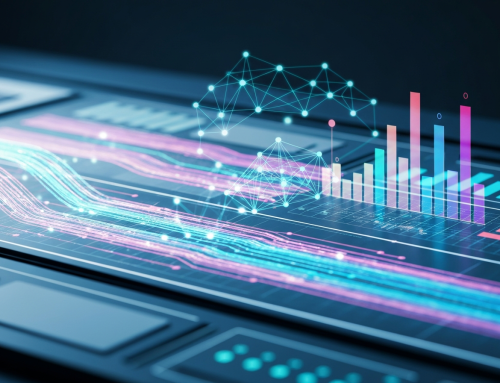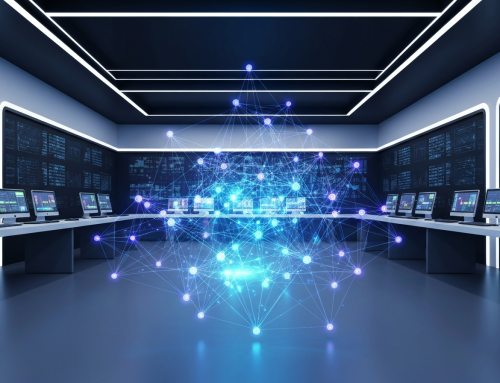The AI Revolution Reshaping Web Development
The landscape of web development is undergoing a profound transformation, largely driven by advancements in artificial intelligence. This shift is not merely incremental; it represents a fundamental rethinking of how digital experiences are conceived, built, and maintained. From automating routine coding tasks to orchestrating hyper-personalized user journeys, AI is becoming an indispensable component in the modern developer’s toolkit. The rise of AI driven e-commerce website development exemplifies this evolution, promising enhanced efficiency, smarter operations, and unparalleled customer engagement.
AI’s integration into web development is moving beyond theoretical concepts to practical applications that significantly impact project timelines and resource allocation. Developers are leveraging AI to generate boilerplate code, debug more efficiently, and even predict potential issues before they arise. This paradigm shift allows development teams to focus on higher-value tasks, fostering innovation and reducing time-to-market for complex web applications and e-commerce platforms.
Enhancing Customer Experiences with AI in E-commerce
In the competitive world of online retail, customer experience is paramount. AI offers a powerful suite of tools to elevate this experience, making e-commerce platforms more intuitive, responsive, and personalized. An AI driven e-commerce website development approach prioritizes the end-user, leading to improved engagement and conversion rates.
- Personalized Recommendations: AI algorithms analyze browsing history, purchase patterns, and real-time behavior to suggest products that are highly relevant to individual shoppers. This goes beyond simple customers who bought this also bought… to truly anticipate desires.
- Intelligent Chatbots and Virtual Assistants: These AI-powered tools provide instant customer support, answer queries, guide users through product selections, and even assist with checkout processes. They offer 24/7 availability, significantly improving response times and reducing the burden on human support teams.
- Dynamic Content and Layout: AI can adapt website content, promotions, and even layout in real-time based on user segments, geographical location, or current trends. This ensures that each visitor receives the most relevant and engaging presentation of products and services.
- Optimized Search Functionality: AI-powered search engines within e-commerce sites understand natural language and intent, delivering more accurate and relevant search results even with misspelled queries or vague descriptions.
For platforms like WooCommerce, Magento 2, Shopify, and BigCommerce, AI capabilities can be integrated to unlock advanced features that were once the domain of custom-built, enterprise-level solutions. This democratizes sophisticated personalization, making it accessible to a wider range of businesses.
Efficiency and Innovation in AI Driven E-commerce Website Development
Beyond enhancing the customer journey, AI significantly boosts the efficiency and innovative capacity of web development itself, particularly in the e-commerce sector. An AI driven e-commerce website development lifecycle sees automation and intelligence embedded at every stage, from initial design to ongoing maintenance.
- Automated Code Generation and Optimization: AI tools can write code snippets, complete functions, and even suggest architectural patterns, accelerating development. This is especially beneficial for repetitive tasks common in setting up and customizing e-commerce platforms like WordPress and Magento 2.
- Predictive Analytics for Performance: AI can analyze traffic patterns, server loads, and user interactions to predict potential bottlenecks or performance issues. This allows developers to proactively optimize infrastructure and code, ensuring a seamless shopping experience during peak times.
- A/B Testing and Design Optimization: AI-powered tools can run multiple A/B tests simultaneously, identify winning design elements, and suggest iterative improvements for conversions, button placements, and overall user flow. This reduces guesswork and ensures data-backed design decisions.
- Streamlined Content Management: AI assists in generating product descriptions, categorizing items, and even creating marketing copy, freeing up content teams to focus on strategic initiatives rather than manual data entry.
The integration of AI also fosters a more agile development environment, allowing teams to respond quickly to market changes and implement new features with greater speed and precision.
Underlying AI Technologies Driving Online Retail Success
The tangible benefits of AI in e-commerce are built upon sophisticated underlying technologies. Understanding these core components is key to appreciating the full potential of an AI driven e-commerce website development strategy.
Key AI technologies include:
- Machine Learning (ML): At its core, ML enables systems to learn from data without explicit programming. In e-commerce, this translates to algorithms that can predict buying behavior, detect fraud patterns, and personalize recommendations based on vast datasets of past interactions.
- Natural Language Processing (NLP): NLP allows computers to understand, interpret, and generate human language. This powers intelligent chatbots, voice search capabilities, and sentiment analysis tools that gauge customer feedback from reviews and social media.
- Computer Vision: This technology enables machines to see and interpret images. In e-commerce, computer vision facilitates visual search (uploading an image to find similar products), automated image tagging, and quality control for product imagery.
- Predictive Analytics: Leveraging historical data and ML models, predictive analytics forecasts future trends, demand fluctuations, and potential customer churn, allowing businesses to optimize inventory, pricing, and marketing campaigns.
These technologies, when skillfully integrated into platforms such as Shopify, BigCommerce, or even custom WordPress/WooCommerce builds, create robust and intelligent e-commerce ecosystems.
Fortifying Security and Future-Proofing E-commerce Platforms with AI
As online transactions grow, so do the threats. AI plays a crucial role in safeguarding e-commerce platforms and preparing them for future challenges. An AI driven e-commerce website development strategy incorporates advanced security measures that are dynamic and adaptive.
- Fraud Detection and Prevention: AI algorithms can analyze transaction data in real-time to identify anomalous patterns indicative of fraudulent activity, far surpassing traditional rule-based systems. This protects both businesses and customers.
- Anomaly Detection: Beyond fraud, AI monitors website activity for unusual login attempts, data access patterns, or sudden spikes in traffic that could signal a cyberattack. It provides proactive alerts and can even trigger automated responses.
- Threat Intelligence: AI systems can continuously learn from global threat data, adapting their defenses to new and evolving cyberattack vectors. This ensures that security measures remain effective against sophisticated threats.
- Scalability and Performance Optimization: AI can dynamically allocate resources to handle fluctuating traffic, ensuring that the e-commerce site remains responsive and available even during peak shopping seasons. This self-optimization is key for future growth.
By leveraging AI for security and operational resilience, e-commerce businesses can build platforms that are not only secure but also agile and capable of evolving with the digital landscape.
The Road Ahead for AI in Web Development and E-commerce
The journey of AI in web development, particularly in e-commerce, is far from over. Future trends suggest an even deeper integration, leading to truly autonomous and hyper-intelligent online experiences.
Expectations for the future include:
- Generative AI for Full Website Creation: Imagine AI generating entire e-commerce sites, including design, content, and initial product listings, from a few simple prompts.
- Proactive User Support: AI systems will anticipate user needs and offer solutions before the user even articulates a problem, leading to truly seamless interactions.
- Enhanced Augmented Reality (AR) and Virtual Reality (VR) Integration: AI will power more immersive shopping experiences, allowing customers to virtually try on clothes or place furniture in their homes before purchasing.
- Ethical AI Frameworks: As AI becomes more pervasive, there will be a strong emphasis on developing ethical AI guidelines to ensure fairness, transparency, and data privacy in all e-commerce applications.
- Decentralized E-commerce with AI: The intersection of AI with blockchain technologies could lead to more secure, transparent, and decentralized e-commerce platforms.
For businesses looking to remain competitive, embracing the continuous evolution of AI driven e-commerce website development is not an option, but a necessity. Companies specializing in web development and e-commerce solutions must continually adapt their strategies to harness AI’s full potential, ensuring their clients stay at the forefront of digital innovation.
Have questions? Contact us here.








Get Social